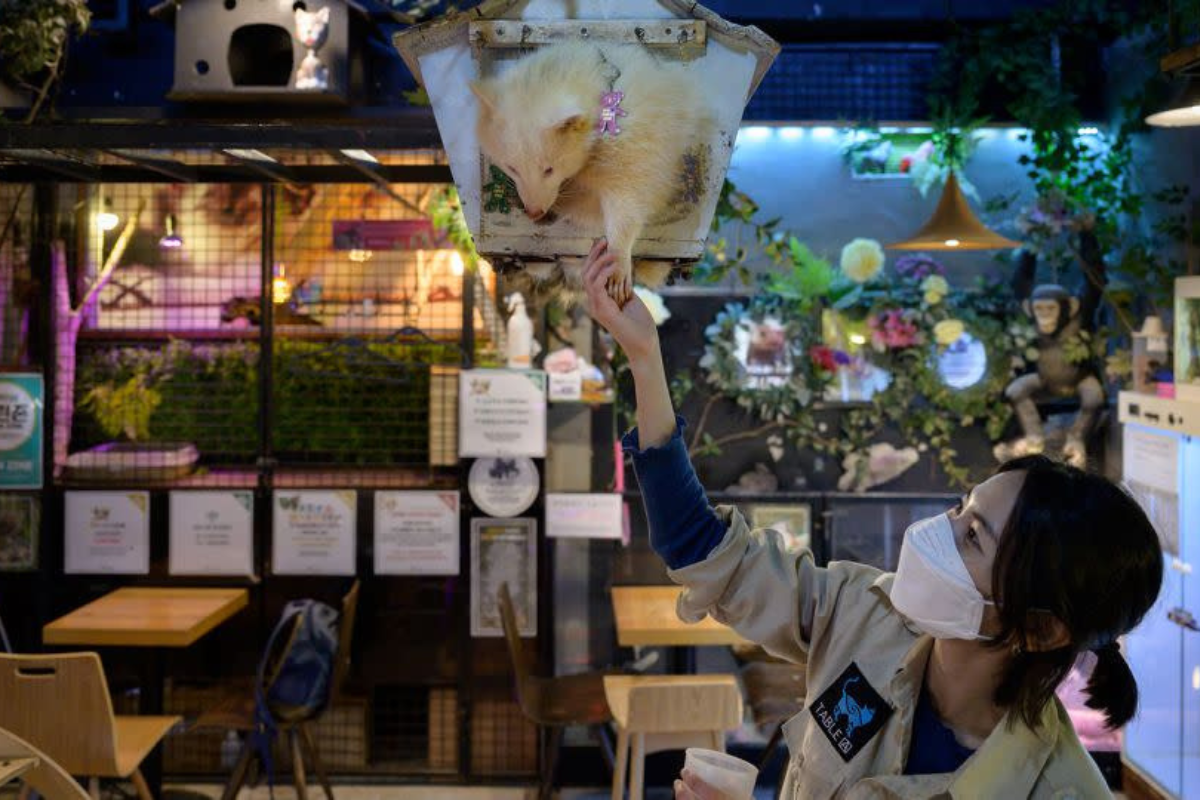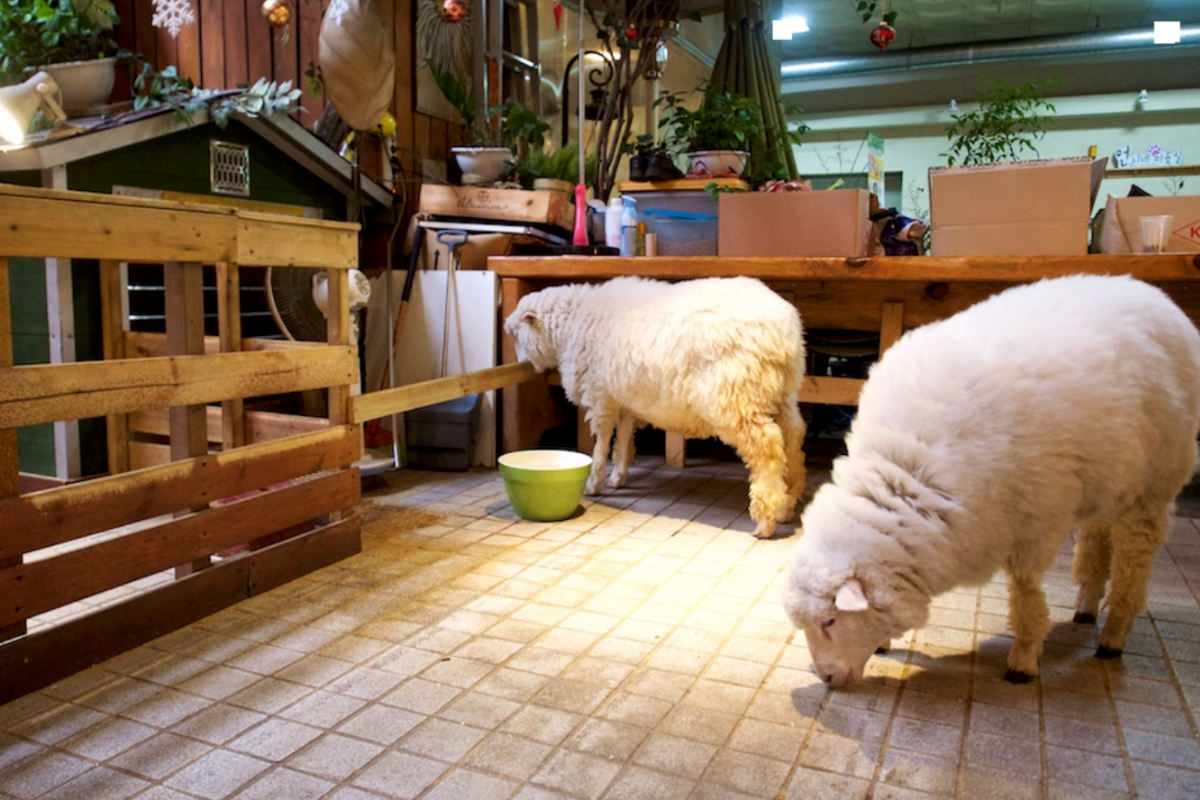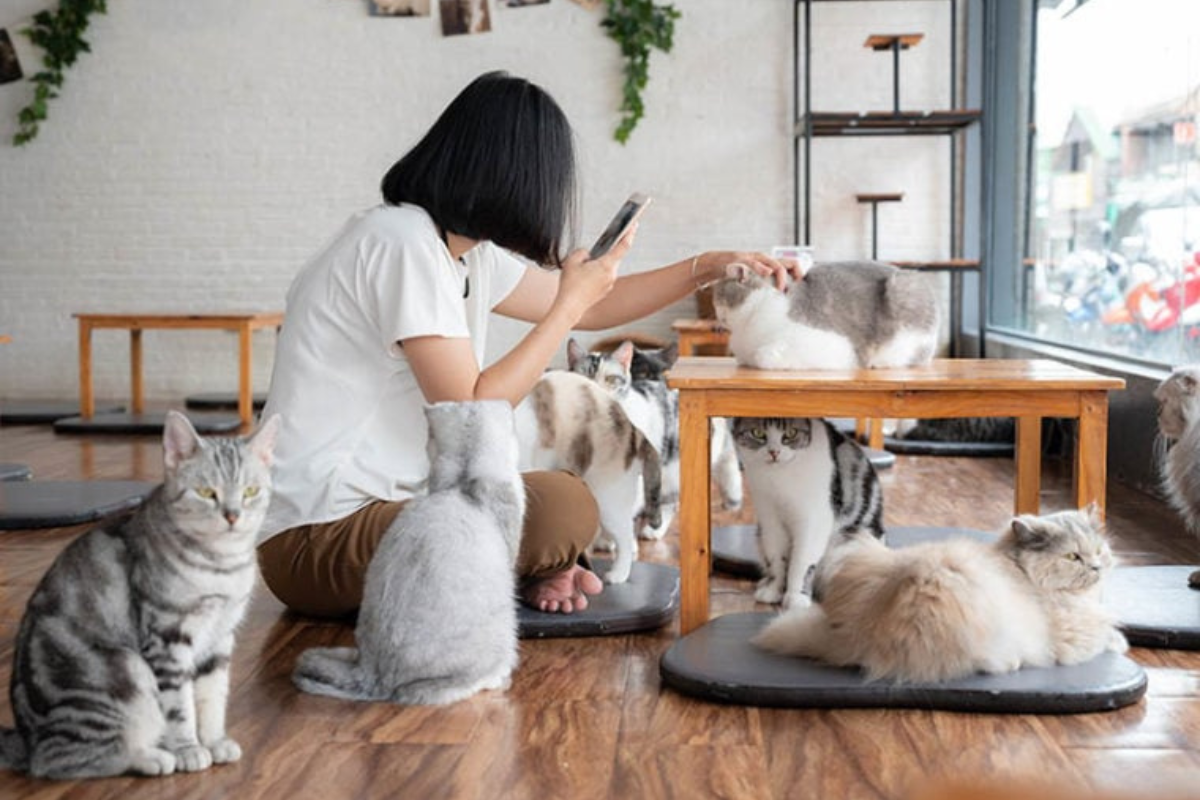Korean animal cafes have become a global phenomenon. Customers sip lattes surrounded by fluffy cats, playful hedgehogs, or chirping owls. These cafes offer a unique experience, allowing for close interaction with a variety of animals. However, the trend has sparked a heated debate about animal welfare and the ethics of keeping creatures in cafes.

Photo: Explore Cook Eat
The appeal of animal cafes is undeniable. In a world increasingly dominated by technology and fast-paced living, these cafes offer a haven for relaxation and stress relief. Studies have shown that interacting with animals can lower blood pressure, decrease anxiety, and boost mood.
For many, especially those living in cramped apartments or without pets, cafes provide a chance to experience the joy of animals. Tourists are also drawn to the novelty, seeking a unique cultural experience. Social media further fuels the trend, with pictures of adorable animals generating buzz and attracting new customers.
Beyond the cuteness: The ethics of keeping animals in cafes
Despite their popularity, animal cafes raise serious concerns. Critics argue that cafes prioritize profit over animal well-being. Animals are often kept in confined spaces, lacking the stimulation and territory needed for natural behaviors. Constant interaction with strangers can be stressful, leading to exhaustion and anxiety.
Some cafes source animals from breeders with questionable practices or obtain them when young and cute, only to discard them when they become older or less appealing. Additionally, cafes often focus on specific breeds or species with “cute” traits, neglecting the needs of animals who may not adapt well to cafe environments.

Photo: Yahoo
A major cause for concern is the constant stream of visitors. While some animals may enjoy human interaction, others become overwhelmed. Cafes often lack proper staff training, leaving customers unaware of signs of stress in animals, such as flattened ears, hiding behavior, or hissing. Animals may be poked, prodded, or chased by overzealous visitors, leading to fear and discomfort.
Cafes also pose hygiene and disease risks. Maintaining a clean environment with multiple animals and human interactions is challenging. The spread of zoonotic diseases – diseases transmissible between animals and humans – is a concern. Children, pregnant women, and people with weakened immune systems are particularly vulnerable.
Finding a balance: Responsible cafes and informed consumers
In response to growing concerns, South Korea has implemented regulations aimed at improving animal welfare standards in cafes. These include requirements for larger enclosures, rest periods for animals, and staff training on animal behavior.
However, critics argue that enforcement is often lax, and regulations fall short of addressing the inherent stress of a cafe environment for many animals. Animal rights groups advocate for stricter regulations and even bans on certain types of cafes.
Not all animal cafes are created equal. Some cafes prioritize the well-being of their animals. These cafes provide spacious enclosures with enrichment opportunities, limit interaction times, and closely monitor animal behavior. They also source from reputable breeders and have responsible adoption programs for animals who can no longer stay at the cafe.

Photo: Dewildesalhab
Consumers play a crucial role in promoting responsible practices. Before visiting a cafe, research its animal welfare policies. Look for cafes with ample space, enrichment activities for animals, and clear rules for interacting with them. Observe the animals’ behavior; if they appear stressed or withdrawn, avoid interacting and choose a different cafe.
The future of Korean animal cafes hinges on striking a balance between popularity and ethical treatment. Regulations must be strengthened and rigorously enforced. Cafes must prioritize animal welfare and prioritize healthy interactions.
Consumers can be a powerful force for change by supporting responsible cafes and rejecting those with questionable practices. Ultimately, a shift in public perception from novelty to responsible pet ownership is crucial for ensuring the well-being of animals in cafes and beyond.
Alternative experiences: Rethinking animal interaction
In the face of growing concerns about animal welfare in cafes, alternative experiences are emerging that aim to provide a more ethical approach to animal interaction. One such option is the rise of interactive pet cafes with a focus on limited interaction. These cafes differ from traditional models by prioritizing the well-being of the animals.
Interactive pet cafes with limited interaction restructure the human-animal relationship within the cafe setting. Animals have dedicated living spaces separate from the cafe area. Interaction happens in controlled settings, with trained staff supervising and ensuring a positive experience for both humans and animals. Limited interaction times and structured activities help to reduce stress on the animals.

Photo: Ava Addams
These cafes often prioritize enrichment for the animals. This can include providing toys, climbing structures, and other elements that stimulate natural behaviors. Staff play a crucial role in animal care, providing enrichment activities and ensuring the animals’ needs are met. The cafes may also incorporate educational elements, teaching visitors about responsible pet ownership and the specific needs of the animal species present.
Interactive pet cafes with limited interaction offer a potential solution to the welfare concerns surrounding traditional animal cafes. They allow people to enjoy the benefits of animal interaction while prioritizing the well-being of the animals. However, it’s important to note that these cafes are still a relatively new concept, and their long-term effectiveness depends on responsible management practices and rigorous oversight.

